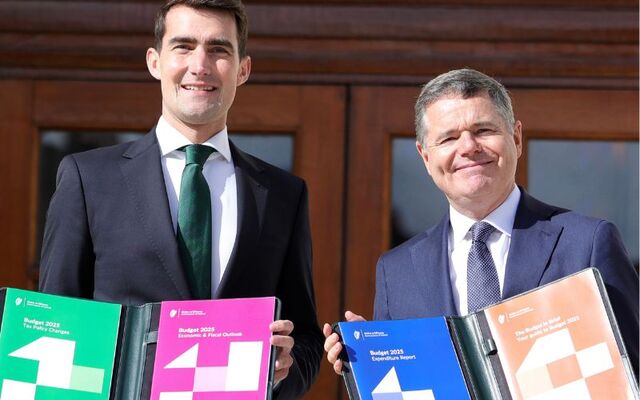The current government have delivered what will be their final budget ahead of the imminent General Election.
The budget was brought forward by one week this year, with Minister for Finance Jack Chambers delivering what was described as a "giveaway budget" which would see €3,000 back into the pockets of the "squeezed middle."
But with the cost of living still rising, and some people still wondering if they’ll feel said squeeze, what are the main takeaways from this year’s Budget?
Parents and new families win big
One of the bigger payments that will be made is that of the new parent-child benefit — which will see a triple payment, worth €420, be paid upon birth.
The child benefit will also be increased by €15 per month for the first six months of the baby’s life, totaling €835.
Students also benefiting
As well as this, both second and third-level students are set to benefit from new schemes — including the free book scheme being extended to Leaving Cert students, covering all of primary and secondary school.
Third-level students will also benefit from the Budget, with €500 set to be cut from third-level fees, as well as an increase in Student Universal Support Ireland (SUSI) grants.
Housing and renters
Those who are renting or owning a house will see a number of benefits — namely the energy credits worth €250, which will be paid in two installments of €125 before and after Christmas.
The renter’s credit will also increase from €750 to €1,000, while the higher rate of income tax will see the minimum threshold raise to €44,000 per year.
The Help to Buy scheme, which will help first-time buyers get a home, will also be extended until 2029.
Ireland now paying most for diesel in the EU
Despite calls from Fuels for Ireland not to increase carbon taxes, an increase means that prices of petrol and diesel will increase by 2c to an average of €1.75 per litre — making Ireland the most expensive country in the EU to fill up the car with diesel.
"The planned carbon tax increase will catapult Ireland to the top of the EU’s fuel price rankings, making us the most expensive country in Europe for diesel and one of the highest for petrol," Kevin McPartlan, Fuels for Ireland CEO, said ahead of the budget.
Budget 2025 will put the country on ‘firm footing for future’
Minister Jack Chambers added that the €14.1billion windfall from the Apple judgment will be used to address "housing, energy water, and transport infrastructure."
"We will invest in a future that ensures Ireland is a country and a society that is fair, equitable, and a beacon of hope, prosperity, and progress," Mr. Chambers said.
"This government, through successive budgets, has supported the individuals, families, and businesses who played an integral part in ensuring our economy is in such a strong position today. Government responded as it should have, with the unity of purpose, and provided extraordinary support to deal with all of the challenges we faced.
"I believe Budget 2025 puts in place the policies and measures to continue this positive trajectory and to ensure that all our people see a promising and hopeful future in this country.
"For many years, we’ve urged the Government to take meaningful steps by establishing an expert group to review fuel taxation. The relentless rise in fuel prices is not just unsustainable for consumers but counterproductive. Our recent survey confirms that 80% of motorists agree with the need for an urgent review."
No VAT decreases, but "pro-business budget"
Despite calls from restaurants and the hospitality sector to decrease the controversial VAT rate from 13.5% to 9%, both that and a decrease to 11% were rejected at the 11th hour.
Despite VAT remaining the same, Minister for Enterprise Peter Burke said that this budget is "very pro-business," and that businesses will receive a significant "power up" cash payment.
"Cash is the lifeblood of our small family businesses and that’s what we will be doing, giving them cash before the New Year and that will be a significant help to them," Minister Burke said.
"Obviously other measures like improving discretionary income for citizens right across the economy."
*This article was originally published on Extra.ie.




Comments